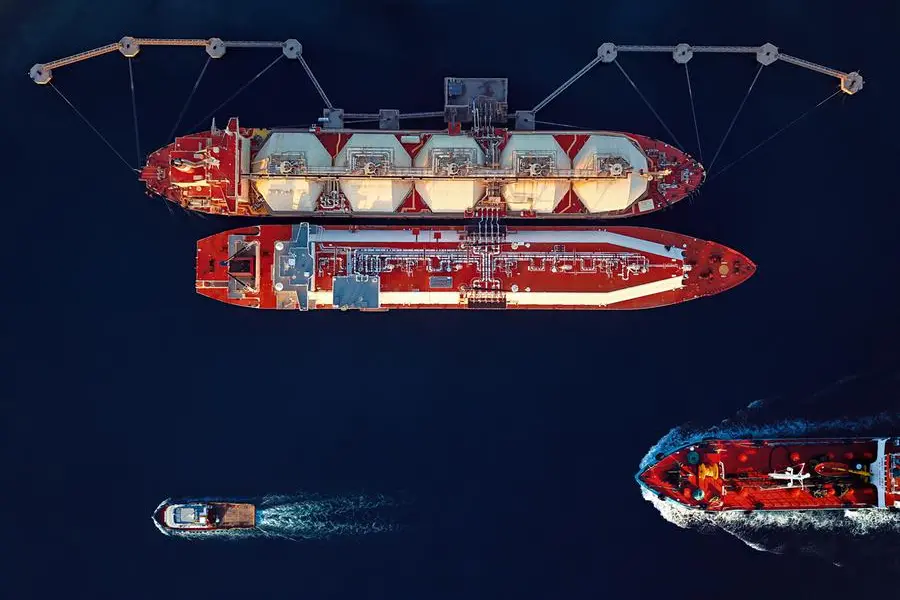PHOTO
Abu Dhabi − Shell Overseas Holdings Limited, a subsidiary of Shell plc (Shell), has signed an agreement to invest in the Abu Dhabi National Oil Company’s (ADNOC) Ruwais liquefied natural gas (LNG) project in Abu Dhabi through a 10% participating interest.
“This investment decision builds on our long-standing partnership with ADNOC," said Shell's Chief Executive Officer Wael Sawan. "In line with our strategy to create more value with less emissions, we are investing in additional LNG capacity and further growing our world-leading LNG portfolio, with energy-efficient and carbon-competitive projects."
The Ruwais LNG project will consist of two 4.8 million metric tonnes per annum (mmtpa) LNG liquefaction trains with a total capacity of 9.6 mmtpa. Shell, through its subsidiary Shell International Trading Middle East Limited FZE, has also signed an agreement to offtake 1 mmtpa of LNG produced by the project. The Ruwais LNG facility is set to have an electric-powered liquefaction system and will utilise access to a renewable power supply. This design supports lower operational emissions compared to traditional gas-powered LNG facilities.
ADNOC will hold a majority 60% share in the project and serve as the lead developer and operator of the facility, while Shell, BP, Mitsui and TotalEnergies will each hold 10%.
ADNOC has awarded an engineering, procurement and construction (EPC) contract to a Technip-led joint venture and will soon start construction in Al Ruwais Industrial City, Abu Dhabi. LNG deliveries are expected to start in 2028.
About:
- The Ruwais LNG project is located some 240 kilometres west of Abu Dhabi, United Arab Emirates.
- Shell has a proud history of more than 80 years in the United Arab Emirates. Shell’s current activities with ADNOC include a 15% interest in ADNOC Gas Processing (AGP) with associated technical and manpower support services.
- The capital investment related to Shell’s 10% participating interest in the Ruwais LNG project will be absorbed within Shell’s cash capital expenditure guidance, which remains unchanged. The deal is in excess of the internal rate of return (IRR) hurdle rate for Shell’s Integrated Gas business, delivering on its 25-30% growth ambition in liquefaction volumes, relative to 2022, as outlined during the 2023 Capital Markets Day.
- Global demand for LNG is estimated to rise by more than 50% by 2040, as industrial coal-to-gas switching gathers pace in China, South Asian and South-east Asian countries. These countries are expected to use more LNG to support their economic growth, according to Shell’s LNG Outlook 2024.
- Shell believes LNG will play a critical role in the energy transition, replacing coal in heavy industry. It also has a continued role in displacing coal in power generation, helping to reduce local air pollution and carbon emissions. LNG helps to provide the flexibility the power system needs, at a time when renewable generation is growing rapidly. Find out more in Shell’s Energy Transition Strategy 2024.




















